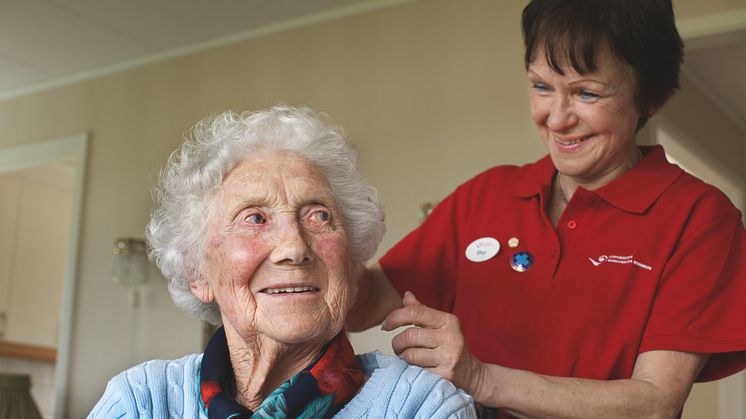
Blog post -
Setting the biological clock - with light
Even though we consider ourselves modern people, our brains are really not that up to date. We are still biological creatures, affected by the shifts in nature - something that is very apparent in the Health and Care sector.
Apart from its central role in vision itself, light is important for many physiological and psychological processes for us humans. It can improve concentration, affect our mood and our biological functions. In healthcare, light is especially important. Optimal use of natural and artificial light can be vital since light has a direct impact on the health of patients and staff. Here are some examples on how awareness of our innate biological clock can ease the care situation for patients.
MIMICKING THE SUN
Independent studies have shown that there is a direct relationship between daylight and our sense of well-being. Light has a positive effect on the human body and controls essential processes. Lack of daylight for long periods of time causes sleep problems, because the production of sleep hormone melatonin and stress hormone cortisol is disrupted. These hormones control the circadian rhythm, and lighting concepts that are in harmony with our internal clock support our well-being.
Patients that are admitted to care for a longer period of time might lose track of the natural rhythm of the day. Therefore an adaption of the artificial light, to mimic the natural daylight, helps the brain to set the biological clock. Our circadian rhythm is controlled by the light’s intensity and spectral composition – where the blue part of the spectrum plays the biggest role. During the afternoon and evening, the light levels are reduced and the light becomes warmer. The lighting follows recommendations for light that supports the circadian rhythm and prepares the body for the night by permitting melatonin production.
LIVING IN A TIMELESS LIMBO
Another group of care recipients that experience trouble keeping track of the day are dementia patients. Dementia is not a normal part of aging. It is caused by damage to brain cells that affects their ability to communicate, which can affect thinking, behaviour and feelings. And though most people with Alzheimer’s are 65 and older, it can also affect younger people.
A common symptom of dementia in general is a constant wandering, during the day as well as the nights. Since these patients don’t receive enough sleep, they are often more agitated during the day and experience more noticeable mood swings. According to the UK Alzheimer’s association, several studies has shown that bright light therapy can help balance the mood for the Alzheimer patient (see below for references). By regularly sitting under a bright light lamp of 10,000 lux, or brighter, it helps reset the brain. This is best done in the morning, shortly after waking, for 15 to 30 minutes. Many who utilize bright light therapy adapt it in the morning routine buy sitting under the bright light it when they watch television or enjoy breakfast.
NOTHING BUT MAMMALS
The reason this can all work, and ease the care situation for the different patients, is purely biological. The human brain needs the stimulation of daylight to produce the different hormones needed during the day. The circularity of the day is an innate part of our life, and we are programmed since many thousands of years to adapt our body after the shifting of the daylight. By regulating the natural circadian rhythm you can balance your mood, improve the overall well-being and also get a better sleep.
This is also helpful if you feel affected by the darker seasons of the year. Catching the sunbeams outdoor during the day might help you in the same way. The human brain is still adapting to the modern technological society. Give it some natural enlightenment on the way.


